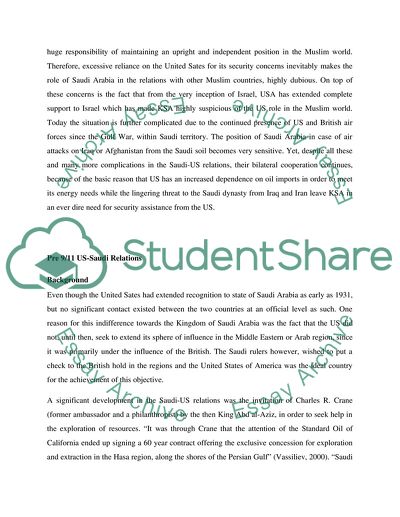Cite this document
(Consequences of 9/11: Saudi Arabia and United States Relationship pre Essay, n.d.)
Consequences of 9/11: Saudi Arabia and United States Relationship pre Essay. Retrieved from https://studentshare.org/politics/1733340-consequences-of-911-saudi-arabia-and-united-states-relationship-pre-and-post-911
Consequences of 9/11: Saudi Arabia and United States Relationship pre Essay. Retrieved from https://studentshare.org/politics/1733340-consequences-of-911-saudi-arabia-and-united-states-relationship-pre-and-post-911
(Consequences of 9/11: Saudi Arabia and United States Relationship Pre Essay)
Consequences of 9/11: Saudi Arabia and United States Relationship Pre Essay. https://studentshare.org/politics/1733340-consequences-of-911-saudi-arabia-and-united-states-relationship-pre-and-post-911.
Consequences of 9/11: Saudi Arabia and United States Relationship Pre Essay. https://studentshare.org/politics/1733340-consequences-of-911-saudi-arabia-and-united-states-relationship-pre-and-post-911.
“Consequences of 9/11: Saudi Arabia and United States Relationship Pre Essay”, n.d. https://studentshare.org/politics/1733340-consequences-of-911-saudi-arabia-and-united-states-relationship-pre-and-post-911.


